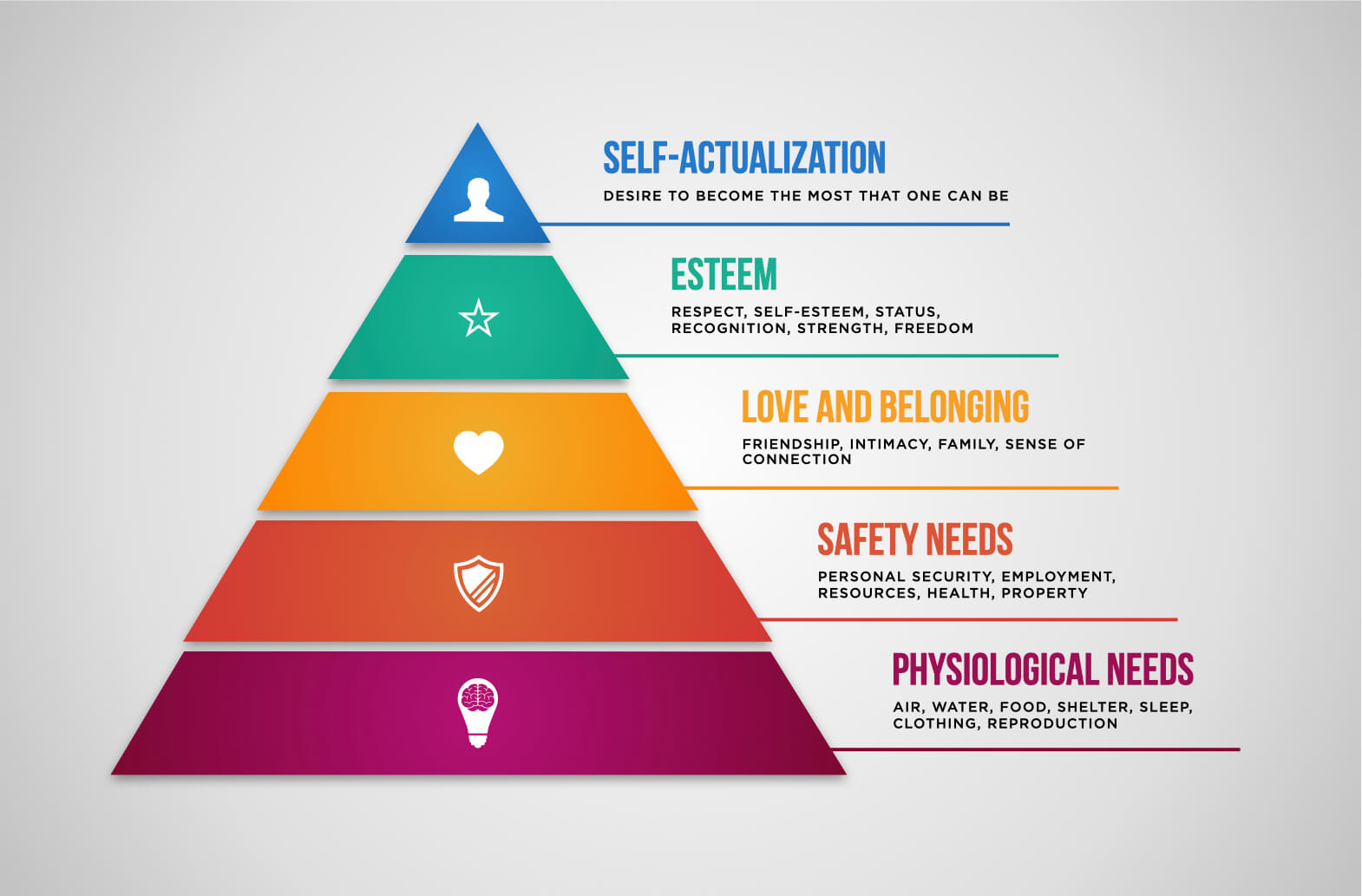This COVID-19 guide is free to all.
| no opt-in or purchase necessary.
Thriving through
uncertainty
In order to help calm our nervous systems (if they’re in Hyper/Hypo mode) and create a “baseline of safety” within your Crisis Protocol, we have to address your personal and most basic needs. In case you’re not familiar with Maslow’s Hierarchy of Needs, this graphic explains the different levels of human need—the baseline being physiological (food, water, shelter, medicine, sleep, etc.).

Why are your personal and most basic needs essential for crisis management?
Until those baseline needs are met, our brains will have a very hard time focusing on any other needs.
So let’s make sure your most basic physiological needs are met first.
Ask yourself…
- Am I in a safe location? Can I stay here?
- Is there enough food and water in the house?
- Do I have the medicine I’d need if I were to get sick? What about prescription medicine?
This is your baseline. So anytime you start to feel yourself go into Hyper/Hypo mode, ask yourself if one of these baseline needs is currently in jeopardy.
Are you worried about groceries? Medicine? Rent/mortgage payment? If so, address these needs first. Because once you are sure that you are housed, clothed, fed, and that your basic physiological needs will be met for the day/week, your mental capacity can expand to focus on the next (very important) step in your Crisis Protocol.
But first …
- If your living situation feels insecure, what can you do to change it?
- Ideas may include: Calling your bank and renegotiating your mortgage payments, contacting your landlord and renegotiating your rental payment, moving in with a friend/family member, etc.
- If your food supply is running low, what do you need to do to change it?
- Ideas may include: Prioritizing grocery shopping at the top of your to-do list, ordering groceries online, picking up pre-made meals, alerting a friend/family member, contacting a local church or food bank, applying for SNAP Food Benefits, calling the USDA National Hunger Hotline, etc.
- If you’re running low on any other physiological need—sleep, clothing, water, or warmth—what do you need to do to change that?
Disclaimer: None of the information provided in this guide constitutes financial, legal, or medical advice. For complete disclaimer, please review our terms and conditions.
© 2011-2024 Hey, sweet pea, llc. | all rights reserved